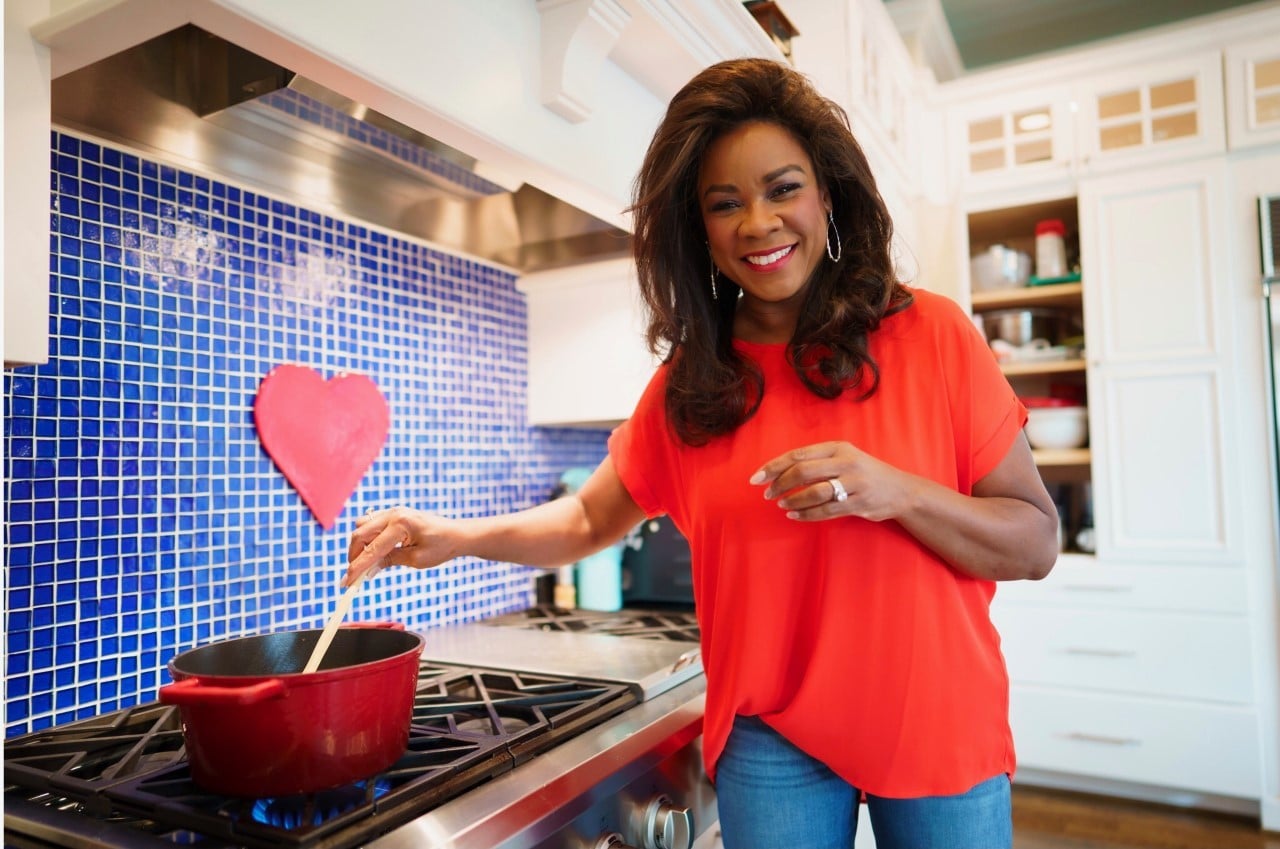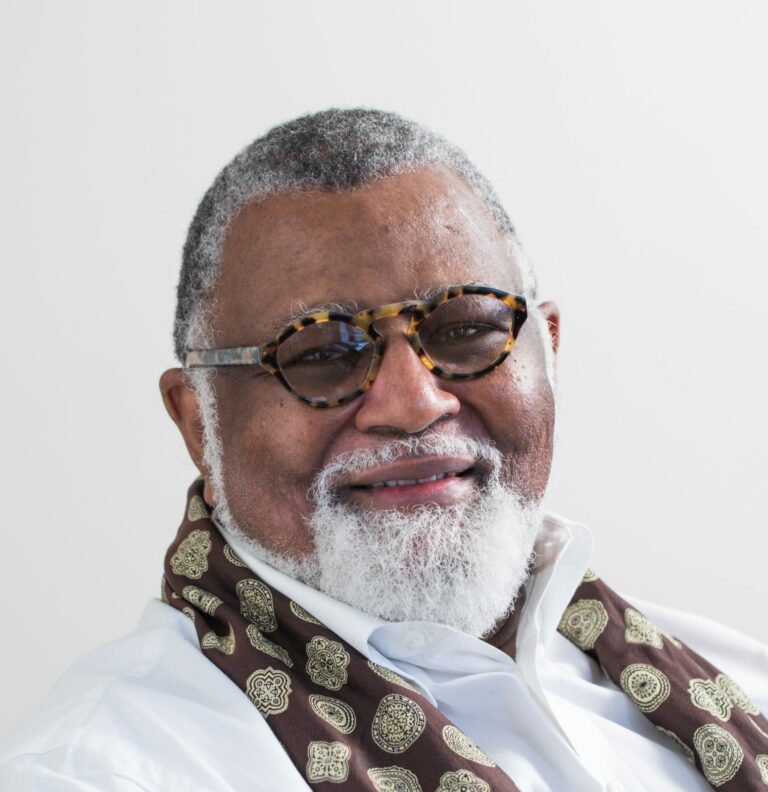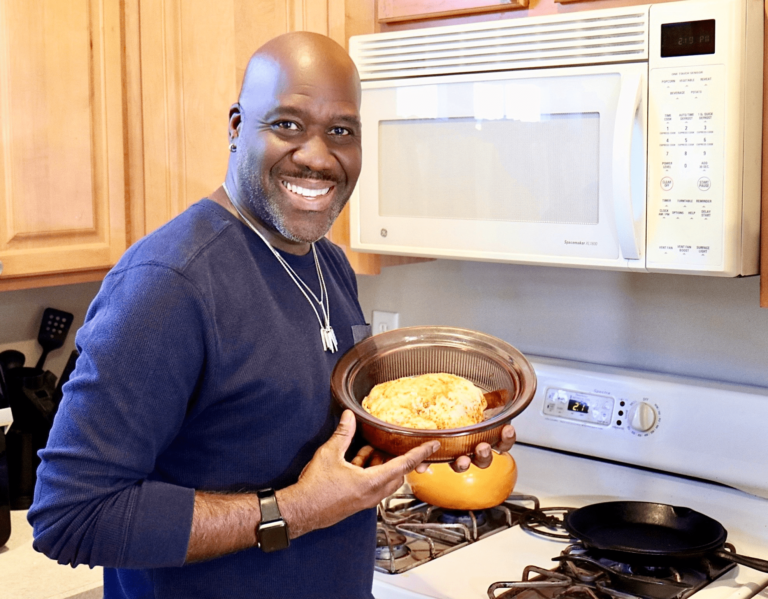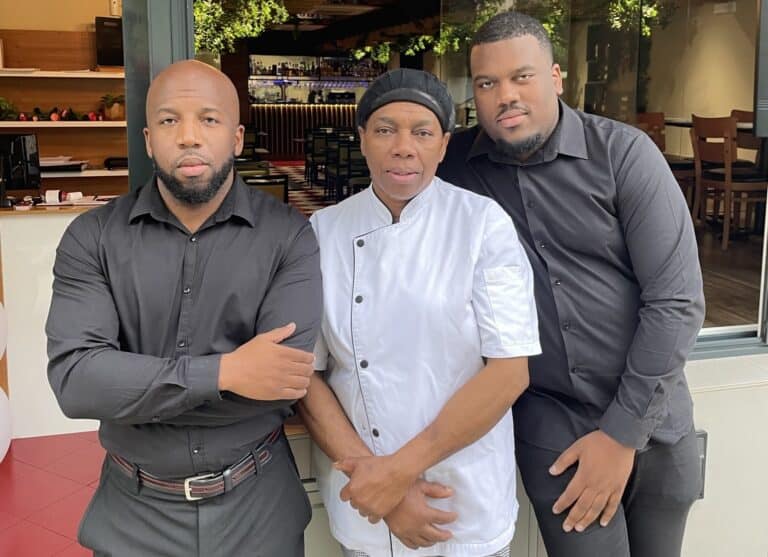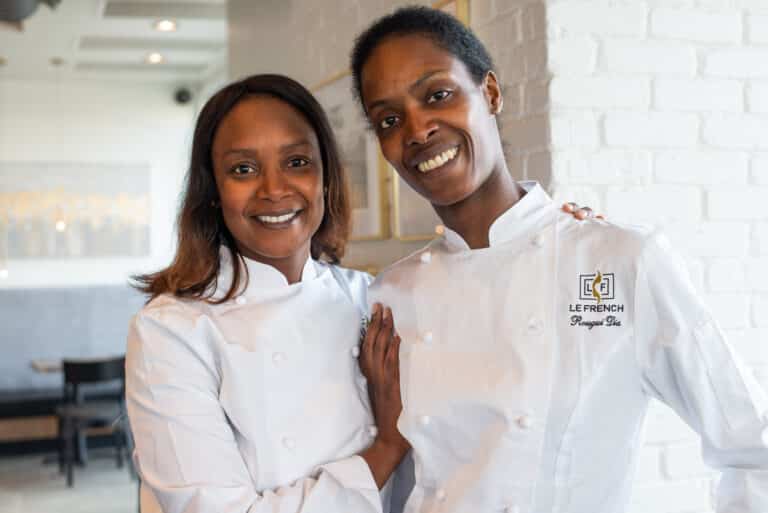|
Getting your Trinity Audio player ready...
|
What happens when your dreams of becoming an opera dynamo all come true? A superstar makes sacrifices, leaving family and friends for extended periods to pursue her passions on the world’s stages. “I was always away. I missed all the birthdays and the holidays. And so what I wanted to do when I had time and came back home was to entertain,” says Denyce Graves, an Emmy and Grammy award-winning mezzo-soprano.
The wife and mother of four often thought about what she would do with her time back home in Maryland when she retired. Graves pictures herself doing more cooking and entertaining with the people she cares about in her circle. “Everybody knows that I love having parties. I love entertaining, and I love being in the kitchen. I actually find that therapeutic. I find that really calming, relaxing and meditative.”
Farm, Family and Friends
The internationally-acclaimed classical singer unexpectedly received more time to get creative in the kitchen when COVID closed opera houses and theaters worldwide. Graves hunkered down with her husband, Dr. Robert Montgomery, and two of her children on the family’s 88-acre farm.
Isolation became mandatory to protect Dr. Montgomery’s health as a heart transplant survivor. “My husband said we can’t go out, and we can’t have anybody here. We’re just going to have to order things in and live off the land,” Graves explains.
Her two teenagers, Max and Ella, groaned and complained when Graves got them involved in growing fruits and vegetables. Their attitudes changed when plants flowered and became produce.
“My son was like, ‘Oh my God, I grew a cantaloupe.’ My daughter was like, ‘Look at my cucumbers.’ There was a tremendous amount of excitement, and then we had quite a bounty. We had all this zucchini and string beans. We couldn’t eat it fast enough,” says the opera star.
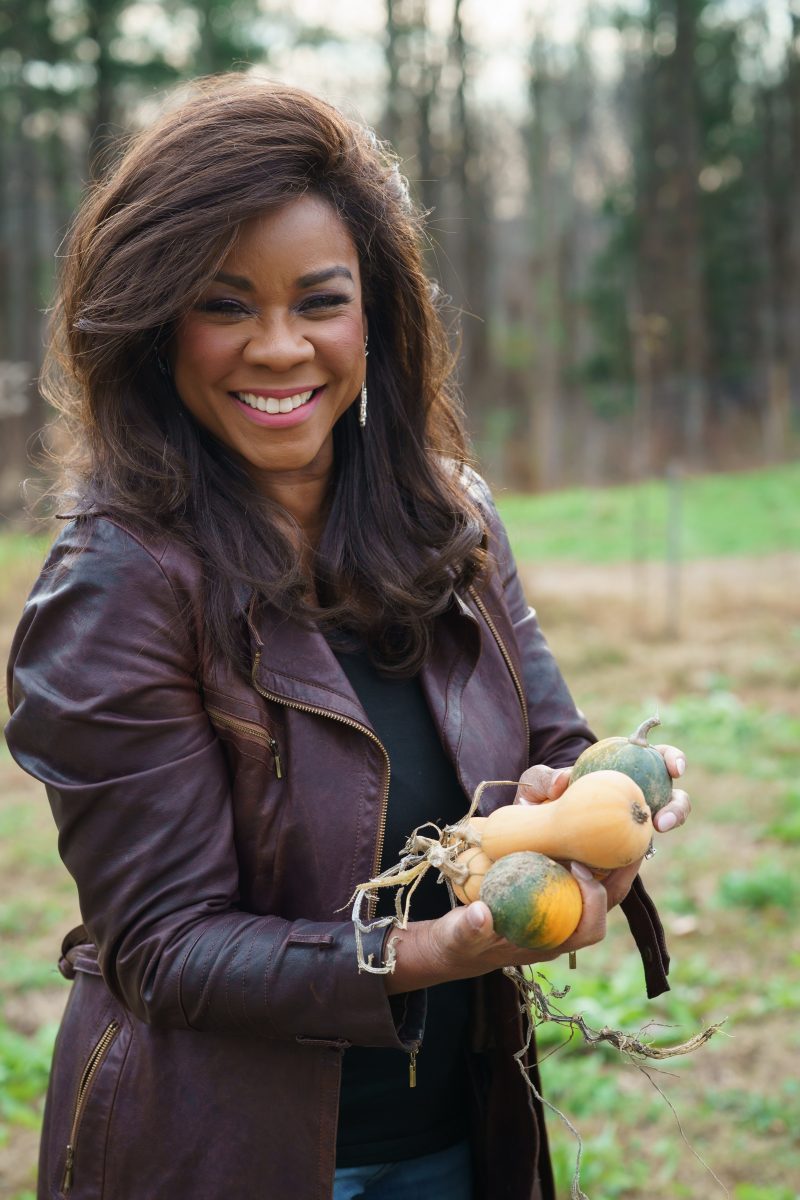
However, things were not going well for some of the young people Graves teaches at the Peabody Institute and The Julliard School. The impact of the pandemic on her students and colleagues soon took center stage.
“I had a conversation with one student who was so despondent and so angry and so resigned,” says Graves. “She made such an impression on me after our telephone conversation. I was just calling in to check to see how they were doing and how I could be helpful.”
The desire to uplift talented artists she knew gave the world-renowned performer an idea. Why not use her kitchen and the farm’s bounty to introduce unemployed classical music artists and sidelined student protégés to a new audience?
Creating Connections in the Kitchen
The virtual show, “Cooking with Denyce,” practically came to life overnight on Facebook Live and YouTube. Graves discussed her idea with a tech-savvy friend and current show producer on a Thursday. They went live with the first episode in two and a half days.
“There was zero preparation and zero advertising. That is how spontaneous it was. And then Sunday, we did it, and we had 20,000 viewers with no publicity. We cobbled together a quick little commercial, and we just went live.”
Graves is still astounded at how quickly it all came together. Her first guest Reginald Smith performed with her in a production of “Porgy and Bess” at the Metropolitan Opera right before the pandemic closed venues.
“You can blame this whole entire thing on him. He came up with the name. He and I started “Cooking with Denyce” on the Metropolitan Opera stage. We had about five to seven minutes before the curtain went up, and all we talked about was food.”
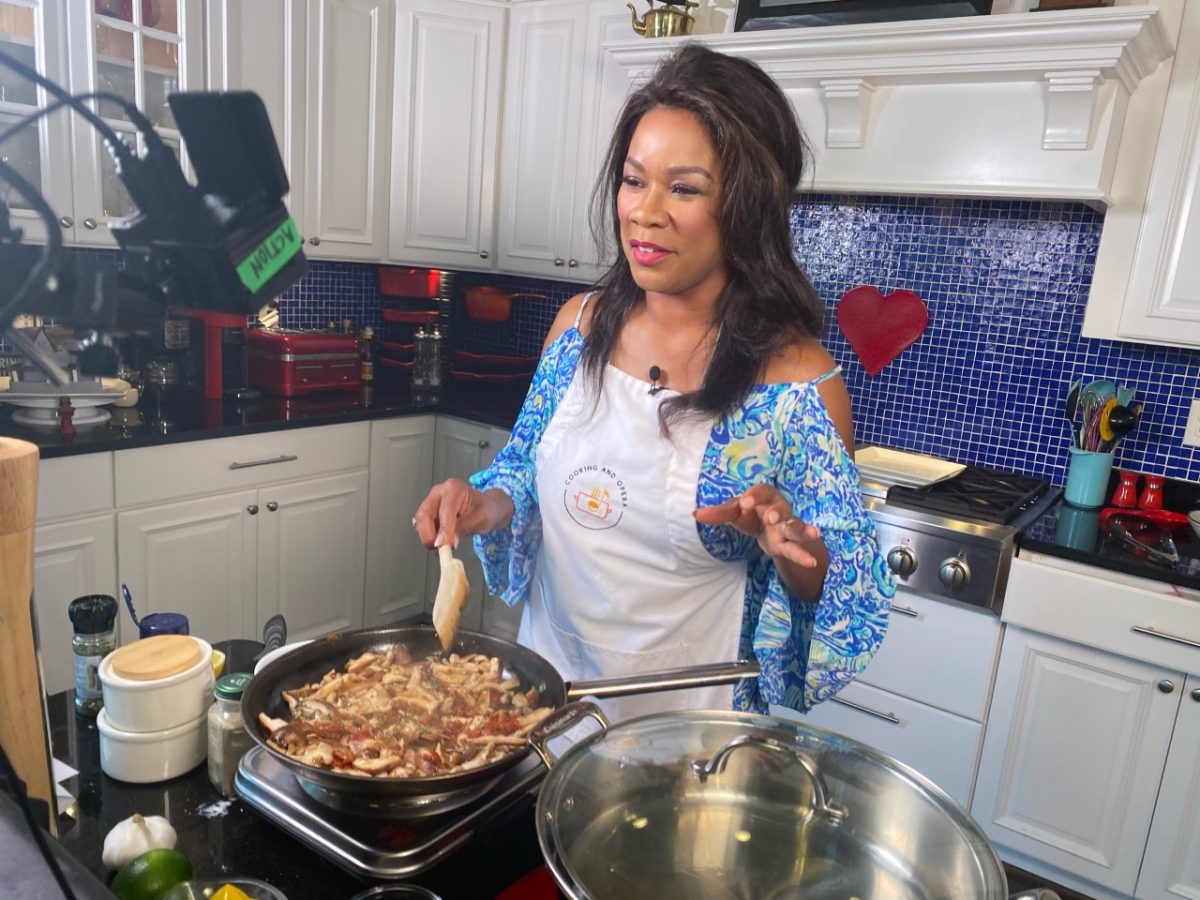
Smith and Graves did more than talk about food. They shared whatever they cooked while on tour, so bonding on the first episode was easy.
“I said we’ve got to get Reggie. We’ve got to use something from our garden. We’ve got to talk about singing. We’ve got to talk about young artists. We’ve got to talk about what people are doing during the pandemic, how they are staying relevant and keeping themselves together. And the show was born,” Graves adds.
The opera star laughs as she recalls how the first show went overtime, lasting 90 minutes. The audience stayed with Graves and her guests for each of the 11 episodes that aired at 2 pm Eastern Time on Sundays last year. By the time season 1 ended, the show had 250,000 viewers.
“In my home, they could see my children, my husband, my kitchen, and things from my garden and horses on the farm. I was sharing in a way that I had never done before,” says Graves.
“We were coming into other artists’ homes too, and learning more about them, what their lives were like and what they enjoy doing.”
The online production introduced Graves’ audiences to talented classical singers in exciting new ways by opening up their lives through their kitchen. “The kitchen has this pull. It is this place where we nurture ourselves. We think of the show as nurturing inside and out. It is food for the soul.”

And the live get-togethers have become so much more to Graves, her guests and followers. “It is a feast for all of the different senses; something beautiful to hear, something beautiful to see; something wonderful to taste and something amazing to feel from the performances and from the exchanges of the artists.”
One of the guests came up with a perfect description of what happens in “Cooking with Denyce.” Soprano Symone Harcum calls it “cookconversing,” which is cooking, conversing and singing. The entire Graves Montgomery family gets in on the fun.
“Everyone is in the show, my mother, aunt, brothers and sister-in-law,” she says. “They are in their homes cooking, and I’m in my home cooking. Sometimes we are preparing the same dish together, usually their recipes or a recipe of theirs and mine. Everybody’s cooking.”
- Alexander Smalls Lives Life with Purpose Through Food and Music
- Will Downing: The Prince of Sophisticated Soul Cooks Low and Slow
The singer’s two oldest children are grown and no longer living in her Maryland home. Graves’ son John is moving to Alaska and her eldest child, Elizabeth, has two young children, Lily and Rowan. Graves expects they will all join in on Facebook Live and YouTube at some point.
Cooking Rewards and World Cuisines
How did a mezzo-soprano who is celebrated all over the world fall in love with cooking? It started when she was growing up in Washington, D.C. Graves and her two siblings had to take care of the home front while Dorothy Graves-Kenner, a single mom, worked three jobs.
“In addition to school work, she designated each night of the week for something. Monday night was book report night. Tuesday was sewing night. Thursday night was music night, and that’s how I ended up singing.”
Dinner needed to be ready when her mother got home, so Graves did most of the cooking.
“I really loved doing all that, and I was really good at it. I actually think my brother and sister feigned being bad at it, so I would end up doing it all the time. They were very popular kids, and they wanted to be outside and hang with everybody,” she explains with a laugh.
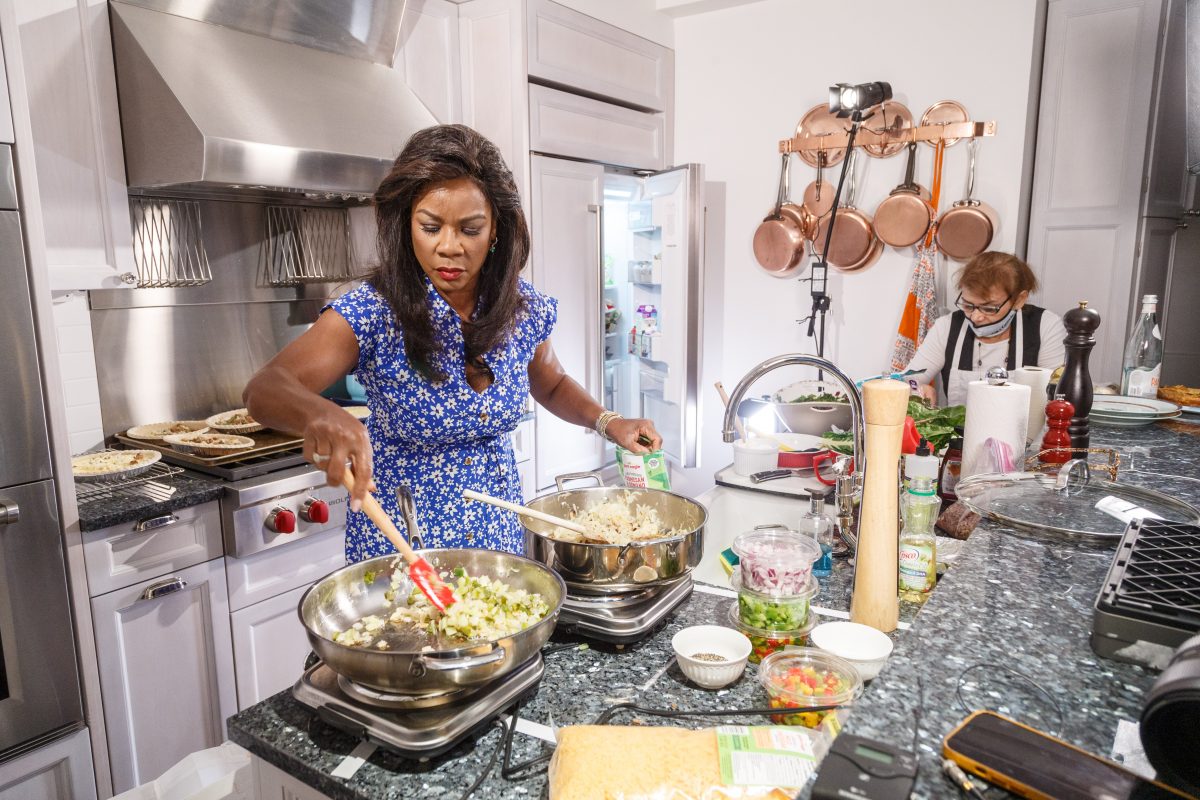
Encouragement from her mother gifted Graves with a life-long love of cooking. Her travels to Italy, France, and Asia brought opportunities to appreciate other foods. She took advantage of classes offered in the homes of French and Italian cooks.
Although the globetrotter enjoys eating and preparing different cuisines, one remains a favorite. “I find Asian cuisine very rich and varied. The variety of it is just spectacular. Italian and French, I would say I love too. But don’t mess with me on Thanksgiving and my mac and cheese and all that.”
Graves tells a hilarious story about the time she was in Madrid and invited all of her friends and colleagues over for a Thanksgiving feast. “A friend of mine actually found a turkey, but he brought the whole turkey, the whole thing with the head and everything. That was really something, having to figure that out.”
The award-winning singer sees similarities in the preparation and agility needed on the stage and in the kitchen. Like the time Graves and a guest burnt a casserole to a crisp on her show. “We say you have to learn how to tap dance. In other words, things happen when it’s live. Mistakes happen. You’ve got to learn to recover. You’ve got to learn to keep going. In other words, the show must go on, both on the stage and in the kitchen.”
Platform for Philanthropy
In April 2021, “Cooking with Denyce” went on the road to Pittsburgh and the home of Marc and Diana Reid Chazaud. They are founding board members of the Denyce Graves Foundation.
The show’s taping coincided with the introduction of the foundation and its first project, raising funds and building support for the restoration of the National Opera House (NOH).
Mary Cardwell Dawson founded the National Negro Opera Company in 1941 at NOH. “Mary Cardwell Dawson was the first woman of opera. She was the trailblazer who enabled me and so many others to have had the careers that we’ve had because of her efforts,” Graves says.
The now dilapidated mansion in the Homewood neighborhood of Pittsburgh once welcomed African American artists barred from local segregated hotels. Duke Ellington, Sarah Vaughn, Ella Fitzgerald, Cab Calloway and other famous performers stayed there.
Dawson, an entrepreneur, teacher, musician and social activist, was a graduate of the New England Conservatory of Music, Graves’ alma mater. “She is inspiring us to get this foundation going, to get the foundation funded, and to continue the work that she’s done and other great American heroes like her.”
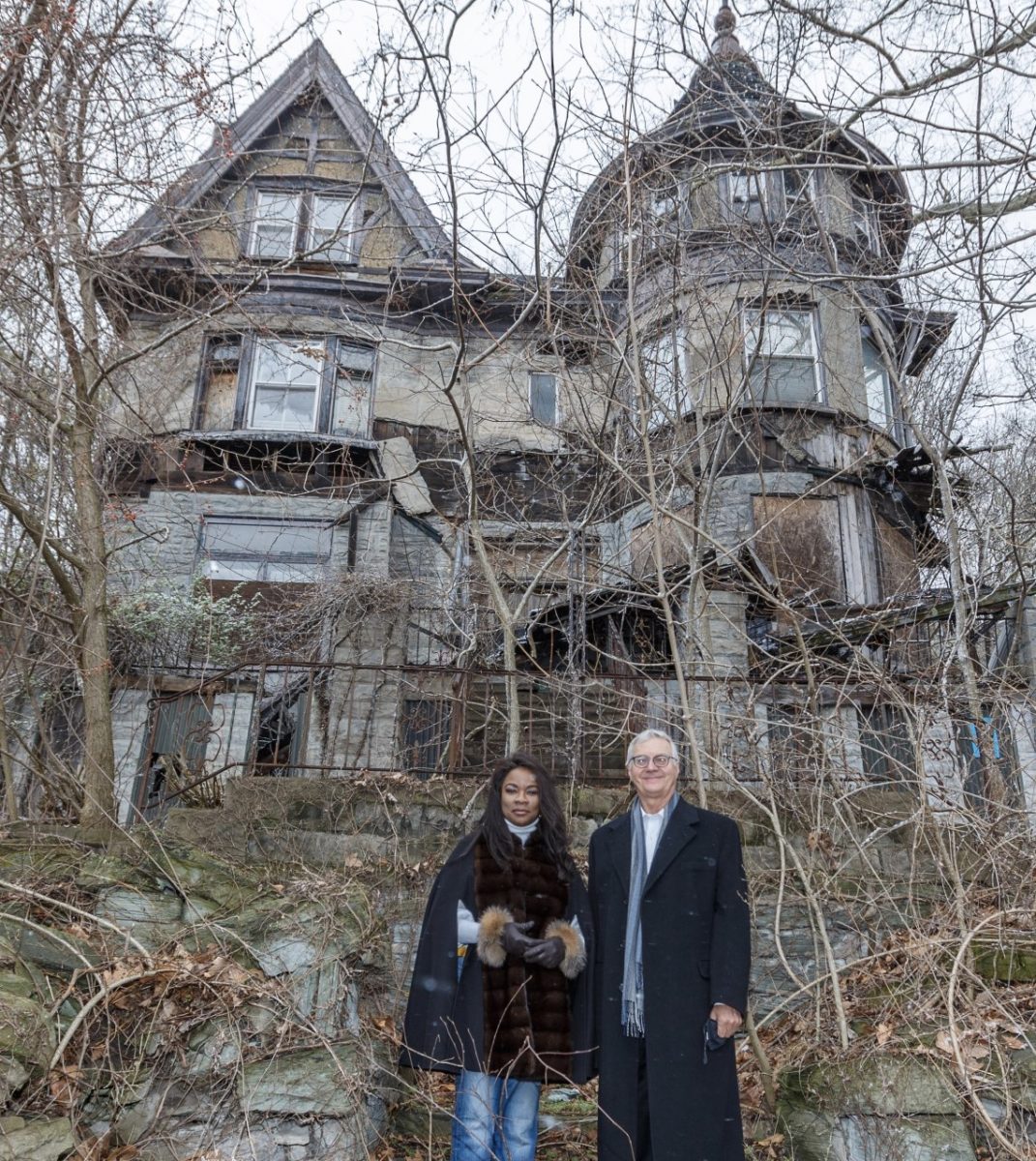
Racism kept Dawson from having the opera career she wanted. But the first Black impresario sang at the Metropolitan Opera in New York City before the legendary Marian Anderson, the first African American hired to sing there.
“Mary Cardwell Dawson, being the entrepreneur and businesswoman that she was, rented the Metropolitan Opera Theater, the first independent opera company to ever do such a thing. She brought 500 African American people to the Metropolitan Opera House, the greatest opera house in the world.”
One of Dawson’s students, Robert McFerrin Sr., became the first African American man to perform at the Metropolitan a few weeks after Anderson. Graves plans to use her foundation to share Dawson’s story and those of other African Americans she calls the “hidden figures.” They are the unknown Black people who achieved remarkable success in opera and classical music.
Gaining support for the Homewood mansion’s restoration and turning it into a museum and performance center is the first priority. “We’re really proud of the work we are doing. We really feel drawn to this cause. We feel that it speaks directly to who we are. It certainly speaks directly to I am,” Graves says.
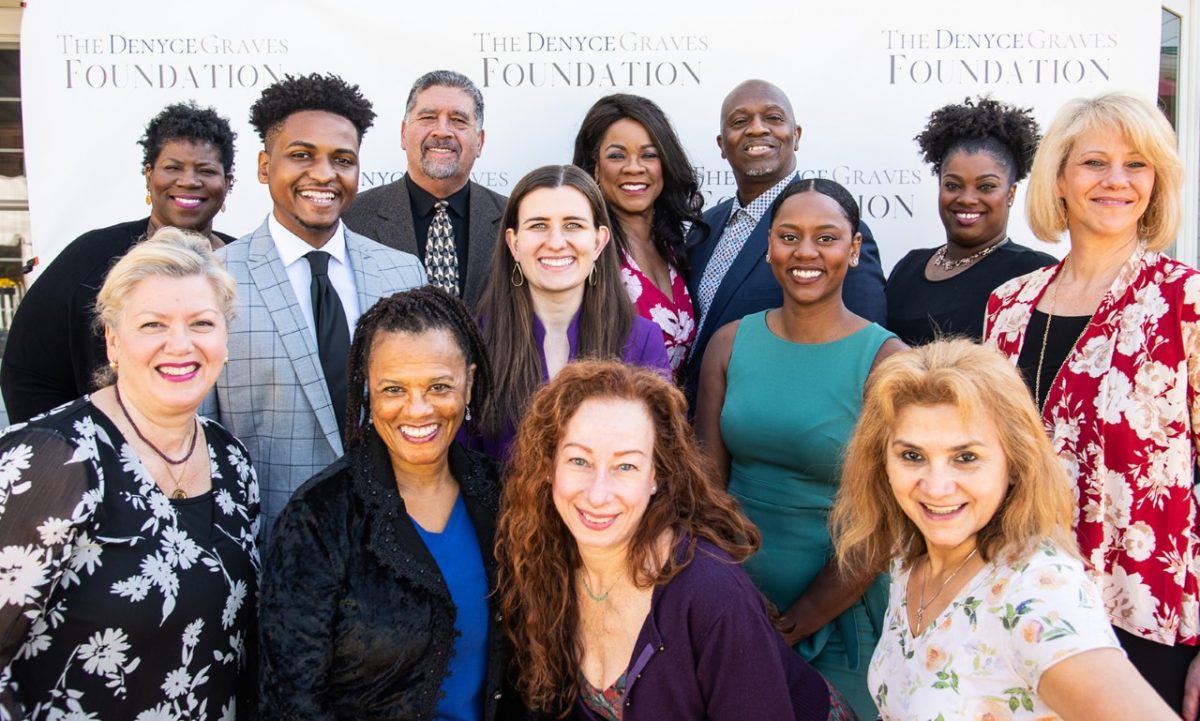
The Graves Foundation has already picked up international recognition. It received the Opera for Peace Prize this year for its efforts to preserve Dawson’s opera house. The National Trust for Historic Preservation added the property on Apple Street to its annual list of America’s 11 Most Endangered Historic Places in 2020.
Pittsburgh’s Jonnett Solomon and the late Miriam White bought the former Negro Opera Company headquarters two decades ago. The Richard King Mellon Foundation recently donated $500,000 to help stabilize the house and begin plans for restoration. Solomon and Graves have joined forces with Pittsburg Opera to request donations and make the $2 million vision for the historic mansion a reality.
Graves considers a conversation she had with the Washington Opera’s Francesca Zambello during the pandemic serendipitous and divine intervention.
They talked about doing a one-woman musical play about Dawson. That discussion took place before Graves began work on her non-profit. “The foundation and the birth of the Mary Cardwell Dawson play with music were completely independent and had nothing to do with each other, and were operating separately. And we didn’t even know that the Mary Cardwell Dawson play would happen until not so long ago.”
RELATED: Grammy Winner Anthony Hamilton Plates Up Passion Seasoned with Love
“The Passion of Mary Cardwell Dawson,” a play with music, will premiere at the Glimmerglass Festival on August 5 in Cooperstown, New York. Graves will perform the title role under the artistic direction of Zambello.
Passing on the Joy
The much sought-after vocalist is optimistic about curtains rising in opera houses worldwide. Graves has a contract to perform at the Metropolitan in the fall. She is also continuing to teach young classical artists what it takes to thrive.
“I would say I really don’t focus on the challenge. I focus on the joy. I focus on their talents, their calling and what their unique gifts are. And I focus on being steadfast and making sure that they are prepared,” says the Peabody Institute’s Rosa Ponselle Distinguished Faculty Artist.
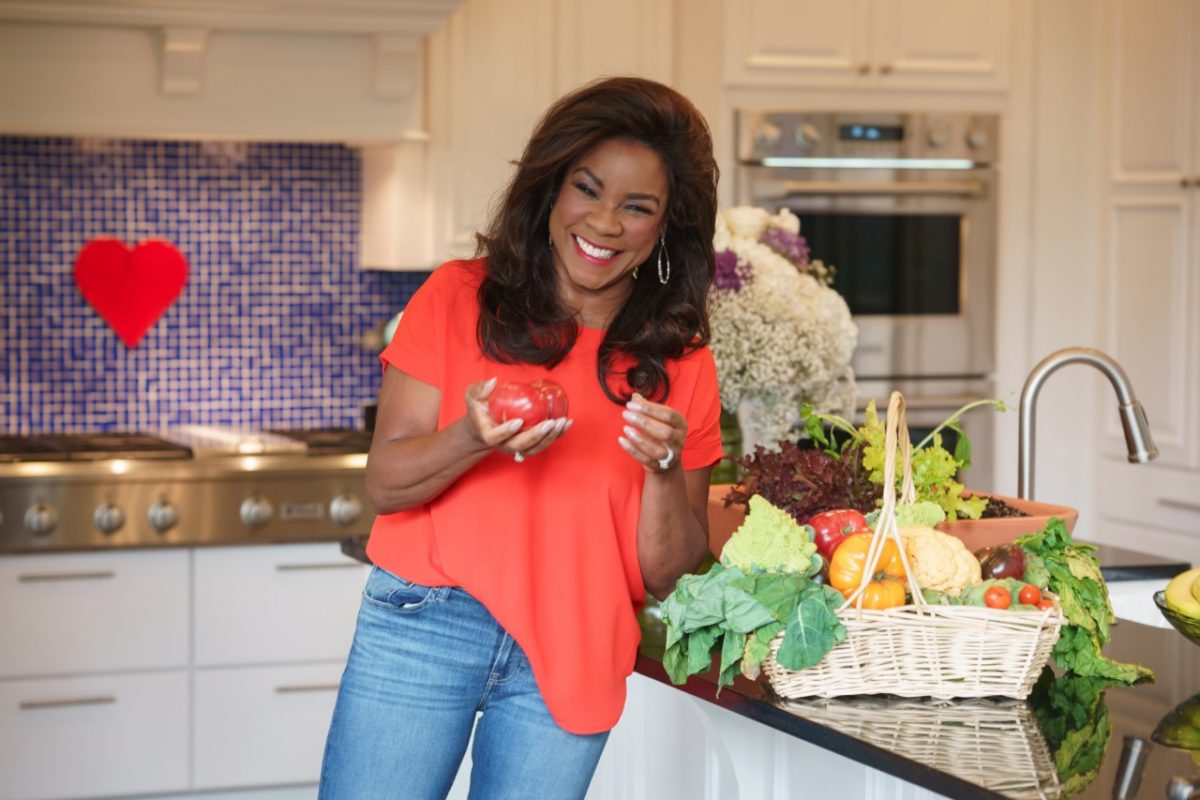
Graves is likely to return to frequent travel with her classes at the Peabody in Baltimore and New York City’s Julliard. Yet, she still hopes to keep producing “Cooking with Denyce” even when invitations to perform at opera houses and concert halls pour in again.
“As we go forward, we’re going to really have to look at sponsors because it was something I was not doing at first. But it is incredibly time-consuming and very, very expensive. We would all love to see it continue,” she says.
Season 2 of her show is in production and expected to be released this summer. Graves hopes it will attract sponsors and more viewers so she can continue passing on her joy of cooking, entertaining and educating. “I hope that it is informative. I hope that it encourages people to want to find out more about the opera. Above all, I really want it to be something that brings light and joy into people’s day.”
Keep up with Denyce Graves and her cooking adventures on her website. You can also get updates on her philanthropic projects on the Denyce Graves Foundation website. Follow the opera star on Instagram @gravesmontgomery and @denycegravesfoundation. She’s on Facebook, @denycegravesfoundation and @denycegravesmontgomery.

